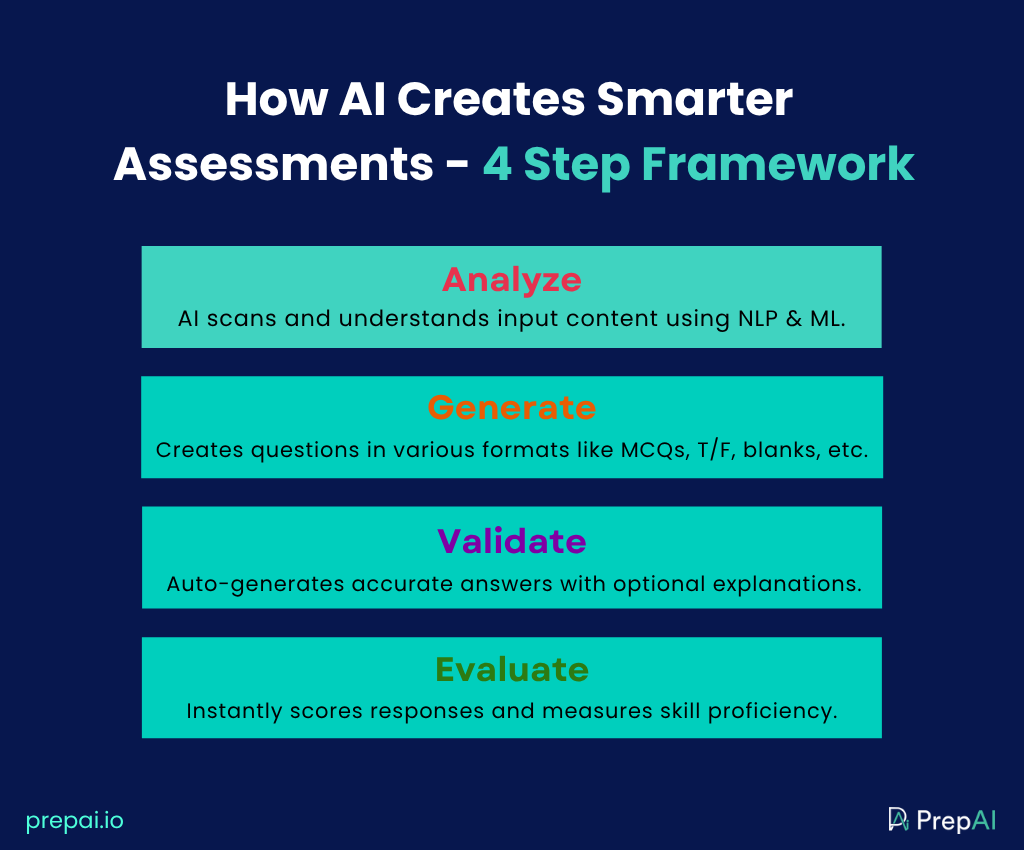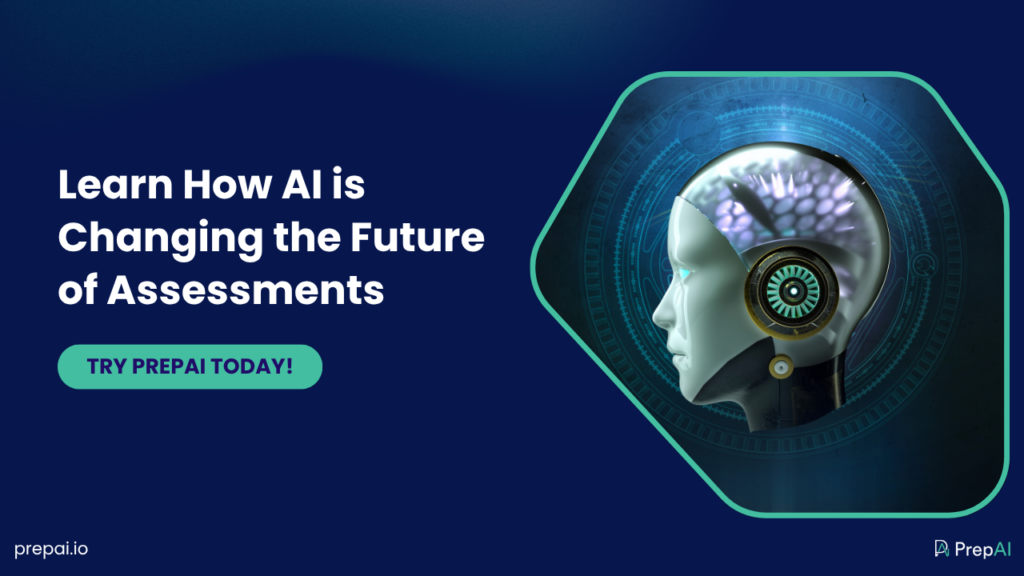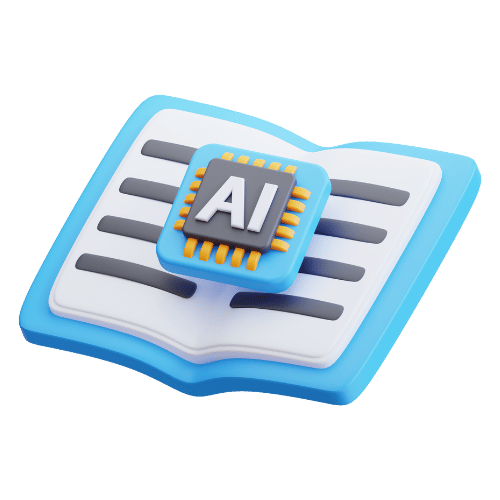Artificial intelligence technologies can analyse vast amounts of data to create high-quality question papers in real-time and help evaluate the participants’ performances. Here, we’ll discuss the role of AI in refining assessment creation for varied purposes and intents.
Assessments are a means to measure and evaluate the skills, knowledge, and capabilities of the participants for diverse purposes. From entrance tests to yearly exams in educational institutions, to competitive exams by universities and boards, and screening tests for recruitment, just about every phase in a person’s life has some form of assessment test that determines their capabilities and helps them prove their worth.
For years, such tests have been created manually by teachers, professors, coaches, trainers, recruiters, etc. However, with the advancement of artificial intelligence, there has been an increase in the use of AI in assessment creation. In fact, AI plays a vital role in the EdTech industry by streamlining major processes, including assessments. Tools like PrepAI are used extensively to create and conduct exams, quizzes, and tests according to each user’s requirements.
So, how exactly is AI refining assessment creation? What role do smart assessment tools play in today’s world?
Let’s find out!
The Working Framework of AI in Assessment Creation
AI-generated assessments are created using machine learning (ML) and natural language processing (NLP) technologies. The tools are powered by AI algorithms trained to understand input data and convert it into different question types.

Typically, the process of using AI in assessments includes the following four major steps, which occur in the backend to deliver the required outcome to users.
- Analysing Content
The AI algorithm will analyse the input content (text, files, drawings, images, audio, video, etc.) to understand the details and context. PrepAI is built on NLP algorithms to be more contextually accurate.
- Generating Questions
The tool then converts the content into text-based questions. The types of questions an AI tool can create depend on how it has been developed. For example, PrepAI’s talent assessment tool supports multiple-choice, true/false, fill-in-the-blank, short descriptive questions, matching, and crossword. Simply put, the given input content is converted into a series of answerable questions.
- Validating the Answers
AI assessments also contain the answer key. Some provide a short explanation to support the answer. This is done by comparing the content with relevant material from multiple sources or by taking the answers from the same input. While AI is pretty accurate, users can cross-check the answers and edit them if necessary.
- Measuring Proficiency
Many tools allow participants to submit their answers to the same interface and get instant results. AI in assessments includes measuring the proficiency and performance of the test takers by evaluating their submissions and providing them with the results. Skill-based assessments measure the specific skills and abilities of the participants to help determine the extent of their talents.
AI-based Exam Creation for Smart Assessments
Assessments have a central role in learning and development. Whether students or professionals at work, everyone’s skills and knowledge are measured based on their performance in relevant assessments. Apart from that, assessments also pave the way for upskilling and reskilling by highlighting the strengths and weaknesses of employees.
Educational institutions and business organizations no longer want to limit assessments to static conventional models. HR teams want to measure the various competencies of candidates to determine if they are the best fit for the job. In recruitment, assessments go much beyond knowledge testing. For example, leadership assessment is conducted to understand the personality and behavioural characteristics of the candidates and determine their problem-solving, crisis management, team management, and decision-making demands at the workplace.
Instead of manually creating these assessments or relying only on instinct and gut feeling to evaluate the candidates, recruiters can combine their experience with AI in assessment creation to get the best of both. This also reduces bias that stems from prejudice and presumptions.
Moreover, with AI assessment, creators are using automation tools. They accelerate the process by performing the same task in a fraction of what it takes when done manually. For example, a teacher may spend an hour of their time creating an assessment for a class test with thirty questions. By using AI in assessment, the same task can be completed in five to ten minutes, from start to finish.
The quality of the questions can be ensured by editing them as required. Furthermore, tools like PrepAI are supported by Bloom’s taxonomy framework and are the best choice to create high-quality cognitive learning assessment tests to measure the higher-order thinking skills of the candidates. There’s no need to put in extra effort to create such versatile questions. AI tools will automatically do it on the user’s behalf. Remember, smart work is better than hard work.
Gamification and Interactive Assessments
Another way AI is refining assessment creation is by making the tests more interactive and engaging. Exams and quizzes don’t have to be boring and filled with blocks of text. In our digital world, assessments can have images, audio bites, videos, and real-life simulations. They can be gamified to attract young talent and keep them engaged in the learning process.
Gamification is the process of using elements of game playing, like interactive visual content, role playing, scoring, levelling, badges, leaderboards, etc. By gamifying assessments, educators and recruiters can create more interest in the participants. The competitiveness encourages them to deliver their best in the assessments.
AI education automation tools are highly effective in creating gamified assessments with images, drawings, charts, tables, etc. Additional features like read-aloud, changing fonts, and adjusting the screen display make the assessments inclusive and user-friendly. People with disabilities can prove their skills and knowledge by participating in these assessments. Similarly, people from different regions and cultures can also be assessed by creating tests in their languages. AI in assessment supports multiple languages and translations.
Automation and Insights with AI in Assessments
Furthermore, there’s no need to manually update the records or assessment results from one software to another. The AI tools can be integrated with various third-party solutions like LMS, HRMS, ERP, CRM, and many more. The assessments are created, conducted, and tracked from a single interface. The participants also find it easier as they can submit the answers online from any location and device instead of physically traveling to another destination.
With assessment creators like PrepAI offering in-depth data analytics, educators, recruiters, and trainers can have a deeper understanding of each participant and the progress of their performance. Teachers can vastly benefit from this as they can use data-driven insights to provide personalized individual feedback to every student and help them consistently improve their abilities. Trainers and coaches in organizations can use the analytical reports to guide employees in their career journey and help them achieve their goals while fulfilling their responsibilities at work.

To Sum Up
Smart assessment tools like PrepAI are game changers and are revolutionizing many industries. AI refines assessments in different ways and creates a comprehensive system to enhance the overall quality, efficiency, accuracy, and reliability of assessments in measuring performances across diverse skillsets, knowledge fields, and more.
Scalability is another benefit of using AI in assessments while ensuring cost-efficiency and fairness. To summarize, artificial intelligence enhances assessment creation in every way, empowering users to reimagine the future of learning and development.



